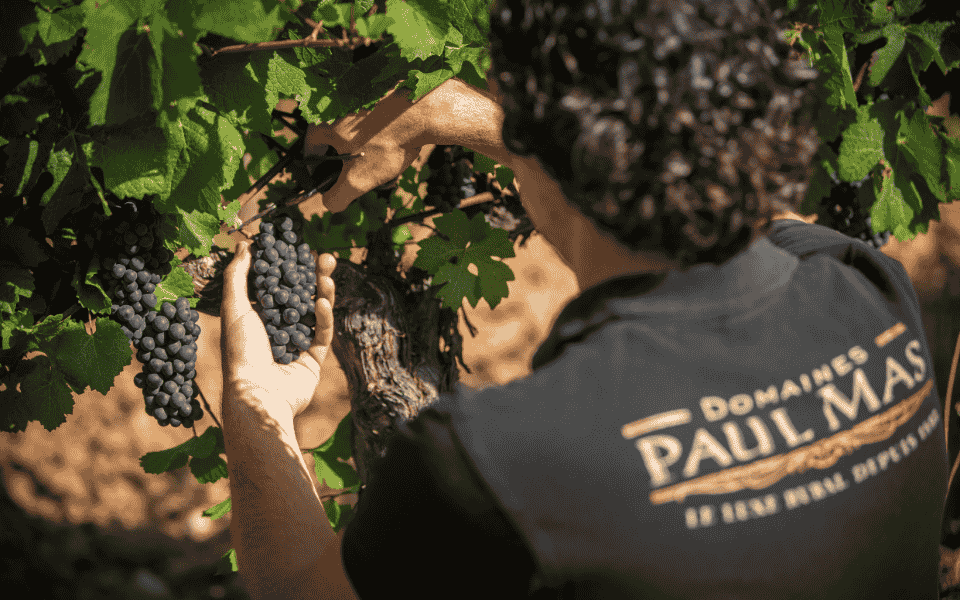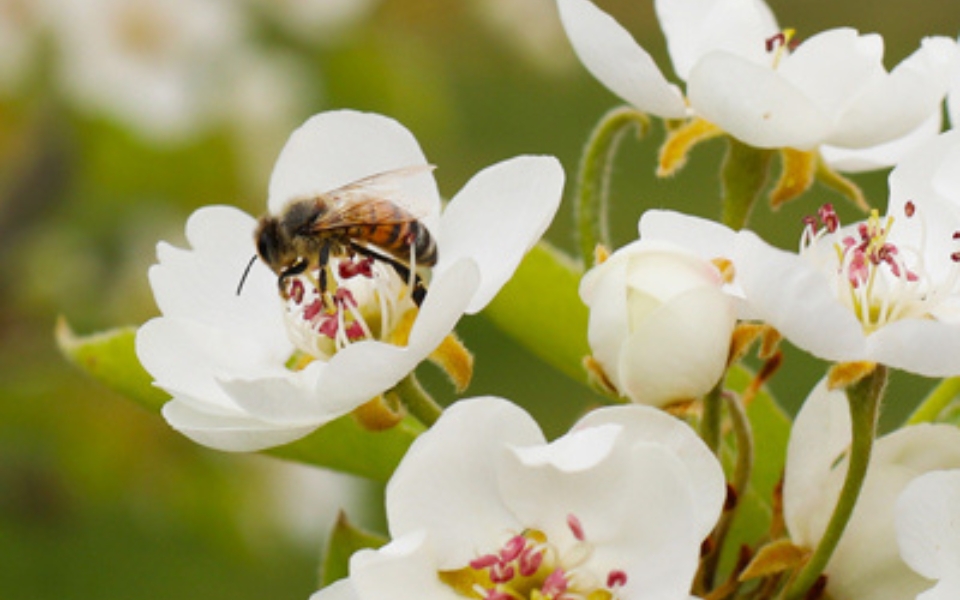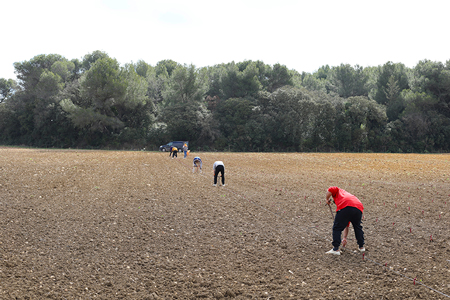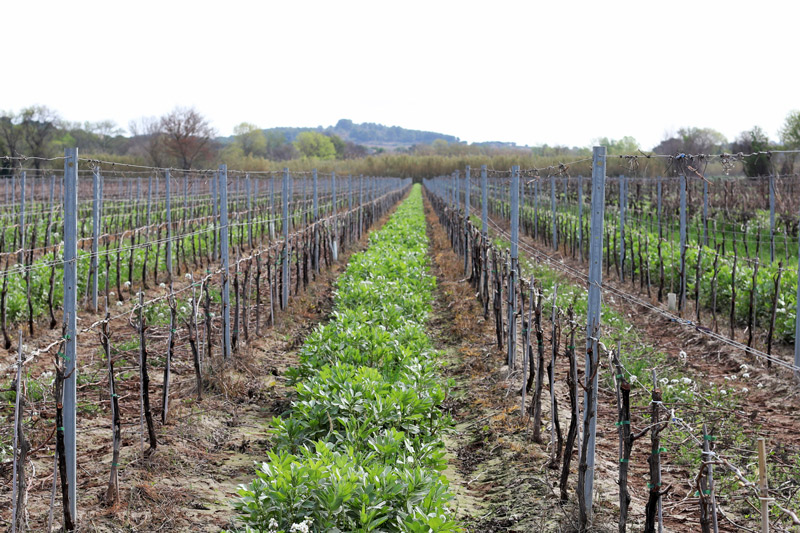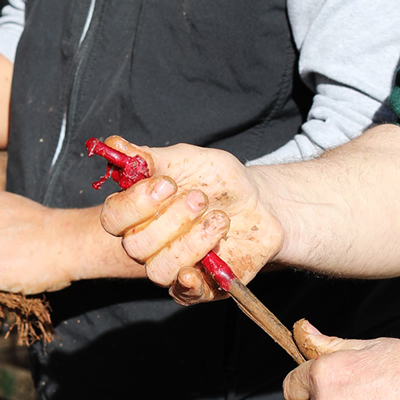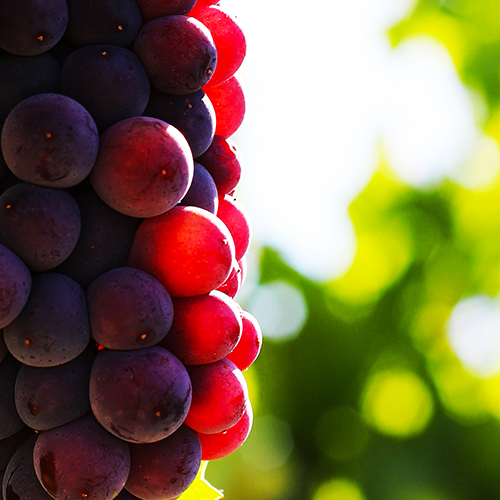

Buzz from our beehives

Spring has finally arrived, and with it, nature is slowly waking up. Our beehives are no exception! After a quiet winter, the bees are beginning to emerge, venturing out in search of the first blossoms. This awakening is great news for the biodiversity in and around our vineyard—bees and vines may not be direct partners in pollination, but they play complementary roles in supporting a healthy ecosystem.
Bees and Vines: A natural partnership
Our bees do more than just make honey—they’re key players in pollinating the wildflowers and plants that grow in and around the vineyard. While grapevines don’t rely on bees for pollination, the surrounding flora does, and this floral diversity strengthens the health of our entire environment.
By boosting local plant diversity, bees attract other helpful insects like ladybugs, which naturally help keep pests under control. So, keeping hives on-site isn’t just about honey—it’s a powerful way to support environmentally responsible viticulture.
Did you know? Spring is all about colony growth
In early spring, bees forage only for their own needs—there’s no honey harvest yet. The nectar and pollen they gather are vital for rebuilding the hive after winter. The colony’s focus right now is growth: feeding the hive, raising new bees, and producing males (drones) for the upcoming mating season. It takes a few more weeks before they can begin producing surplus honey.
Here in Montagnac, the climate has been especially favorable this year. Rainfall in early 2025 has encouraged lush vegetation, providing bees with richer and more abundant floral resources—ideal conditions for colony development and, eventually, a flavorful honey harvest.
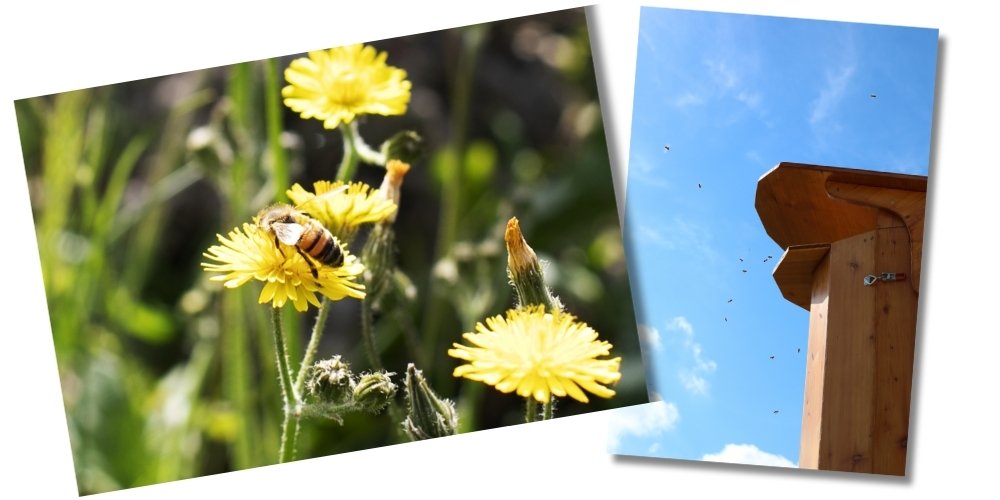
Favorable weather, flourishing vines
This year’s generous rainfall has been a big win—not just for the bees, but for the vines as well. Lush plant life means more flowers, more nectar, and healthier soil. A biodiverse ecosystem helps retain moisture, adds natural nutrients to the ground, and reduces the need for artificial inputs.
What’s more, a thriving, balanced ecosystem helps prevent disease and limits the need for chemical treatments—an essential step toward sustainable viticulture. The synergy between bees and vines is a great example of how biodiversity can enhance both quality and resilience in agriculture.
Why a balanced ecosystem matters
At our estate, we’ve chosen to follow an agroecological approach. Every component—from cover crops between the vines to our thriving beehives—plays a role in maintaining balance. This thoughtful interaction between plants and insects creates a welcoming habitat for pollinators and beneficial species, ultimately enhancing the local biodiversity and supporting more eco-friendly winemaking practices.
Honey harvest? Not quite yet…
While the bees are buzzing with activity, it’s still too early for a harvest. Right now, they’re focused on strengthening their population and preparing for the months ahead. Once flowering hits its peak, they’ll begin producing honey—flavorful and aromatic, a true reflection of the diverse flora surrounding our vines.
We’re closely monitoring the season’s progress and will keep you posted on how things develop. By bringing bees into the vineyard, we’re not just making honey—we’re actively supporting the health and balance of the local environment.
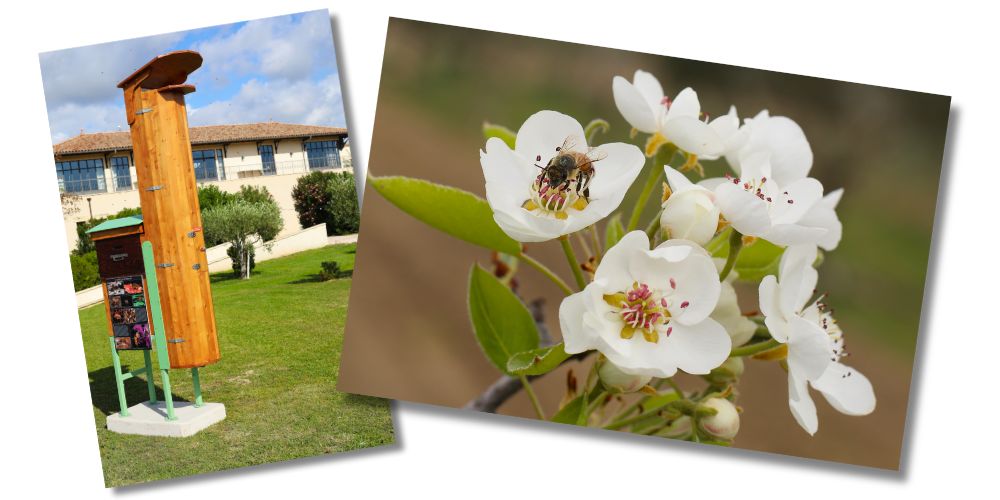
A Commitment to Sustainable Winemaking
For us, integrating bees into our vineyard isn’t just a nice touch—it’s part of a deeper commitment to sustainability and respect for nature. By working in harmony with the land, we aim to produce quality wines while protecting the natural systems that make our terroir so unique.
If you’re curious to learn more about our approach—or want to taste wines from a vineyard that’s truly alive and in sync with nature—feel free to visit us, check out our past articles, or follow along for more updates!
Our partner: Miellerie des Sources
We would like to express our gratitude to our partner, Miellerie des Sources, whose commitment goes far beyond the installation of our hives. Their dedication to caring for our residents is exemplary, keeping us informed of their health and progress, and taking charge of packaging the honey they so generously offer us, all the while sharing with us from time-to-time beautiful images and educational videos that we would like to share with you. Thanks to their expertise and constant attention, our bees thrive in an optimal environment, guaranteeing the exceptional quality of the honey we have the pleasure of sharing with our customers.
